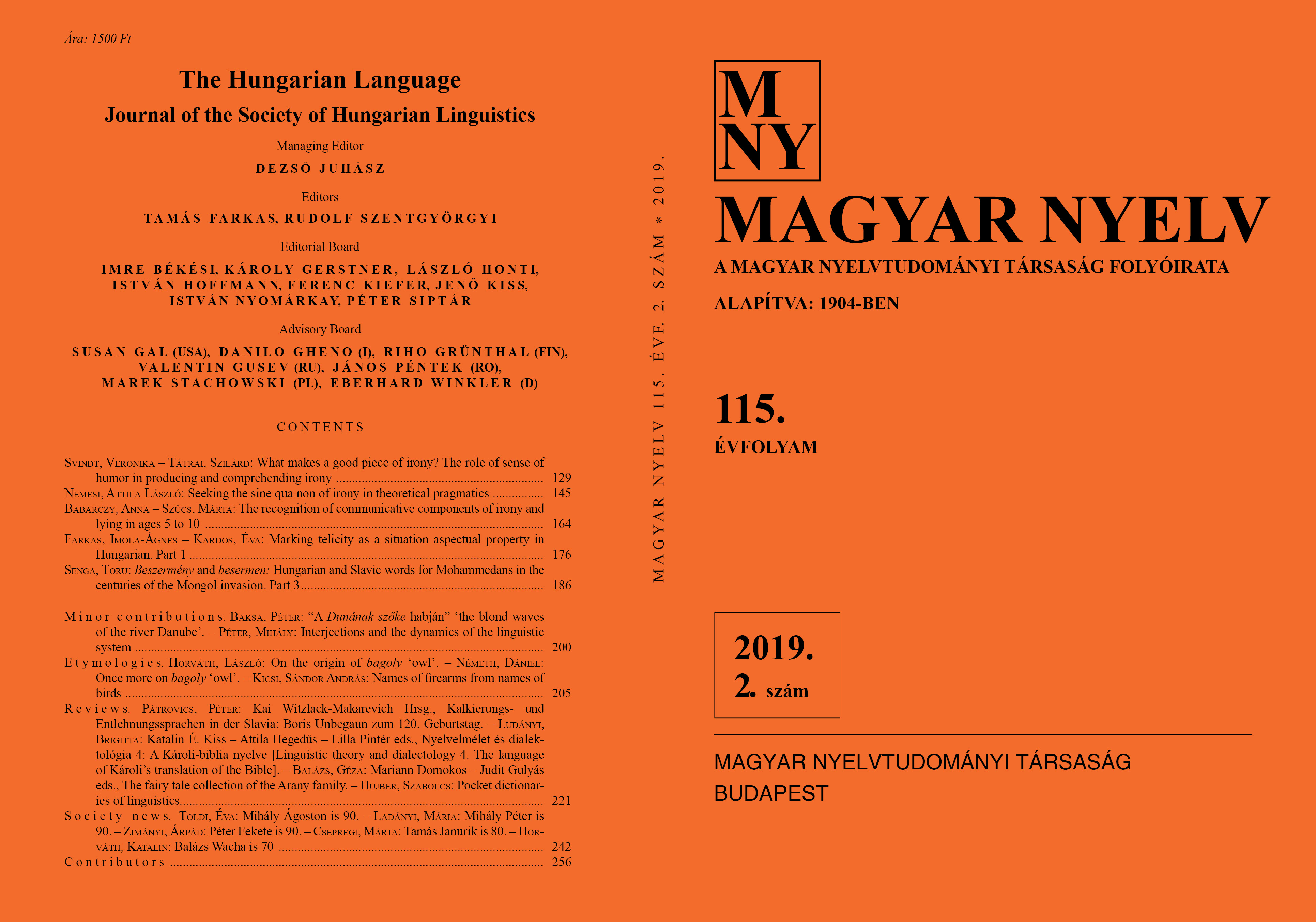What makes a good piece of irony?
The role of sense of humor in producing and comprehending irony
DOI:
https://doi.org/10.18349/MagyarNyelv.2019.2.129Keywords:
irony production, irony comprehension, sense of humor, humor styles, metapragmatic awareness, metapragmatic reflexivityAbstract
The paper discusses the relationship between irony and sense of humor. The point of departure is the popular category of irony, that is, whatever people in general consider to be irony or ironical will be accepted here as irony and ironical, respectively. On the other hand, we emphatically rely on the theoretical and methodological background assumption of functional cognitive pragmatics with respect to the interpretation of irony: the assumption that irony capitalizes on reflexivity, one of the fundamental properties of linguistic cognition, and in particular, participants’ metapragmatic awareness, in an emergent manner. The initial hypothesis of the paper is that sense of humor is positively correlated with both irony production and irony comprehension. The empirical study consists of two steps: we conducted two cascaded online questionnaire studies on the production and comprehesion of irony, respectively, in relation to sense of humor. We used standardized tests to measure the participants’ aptitude for producing/comprehending humor. The study of recognizing and producing irony took place with reference to 15 pictorial stimuli. In our statistical analyses we found that ironical utterances produced with high-level sense of humor were judged significantly more ironical by addressees than those produced by speakers with average or below-average sense of humor. On the other hand, the analyses showed that, in most cases, their own below-average vs. above-average sense of humor did not significantly help participants in judging the level of irony of the utterances presented to them.
Downloads
Published
Issue
Section
License
Copyright (c) 2024 Veronika Svindt

This work is licensed under a Creative Commons Attribution-NonCommercial-NoDerivatives 4.0 International License.
Magyar Nyelv is a Diamond Open Access periodical. Documents can be freely downloaded and duplicated in an electronic format, and can be used unchanged and with due reference to the original source. Such use must not serve commercial purposes. In the case of any form of dissemination and use, Hungarian Copyright Act LXXVI/1999 and related laws are to be observed. The electronic version of the journal is subject to the regulations of CC BY-NC-ND (Creative Commons – Attribution-NonCommercial-NoDerivatives).
The journal permits its authors, at no cost and without any temporal limitation, to make pre-print copies of their manuscripts publicly available via email or in their own homepage or that of their institution, or in either closed or free-for-all repositories of their institutions/universities, or other non-profit websites, in the form accepted by the journal editor for publication and even containing amendments on the basis of reviewers’ comments. When the authors publicize their papers in this manner, they have to warn their readers that the manuscript at hand is not the final published version of the work. Once the paper has been published in a printed or online form, the authors are allowed (and advised) to use that (post-print) version for the above purposes. In that case, they have to indicate the exact location and other data of the journal publication. The authors retain the copyright of their papers; however, in the case of an occasional secondary publication, the bibliographical data of the first publication have to be included.



